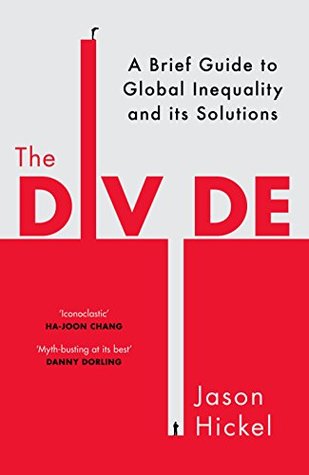More on this book
Community
Kindle Notes & Highlights
by
Jason Hickel
Read between
January 22 - February 9, 2023
When myths fall apart, revolutions happen.
Europe’s development couldn’t have happened without colonial loot.
Remittances sent home by immigrant workers are slashed by exorbitant transaction fees, costing families $33 billion each year.
To eradicate poverty at $5 a day, global GDP would have to increase to 175 times its present size. In other words, we need to extract, produce and consume 175 times more commodities than we presently do. It is worth pausing for a second to think about what this means. Even if such outlandish growth were possible, the consequences would be disastrous. We would quickly chew through our planet’s ecosystems, destroying the forests, the soils and, most importantly, the climate.
In the 1700s, Portuguese Brazil produced more gold using slave labour than the total volume Spain had extracted from its colonies in the previous two centuries.
Without the ecological windfall from the slave colonies, Europe would not have been able to shift its economic capacity towards industrialisation.
The emergence of the landless working class added a final piece to the great transformation of England’s economy: they became the world’s first mass consumer population, for they depended on markets for even the most basic goods necessary for survival: clothes, food, housing, and so on. It was these three forces – enclosure, mass displacement of peasants and the creation of a consumer market – that provided the internal conditions for the Industrial Revolution. The external conditions, as we have seen, had to do with the colonisation of the Americas and the slave trade.
In 1870, only 10 per cent of Africa was under the control of Europeans; by 1914 they had extended their reach across 90 per cent of the continent.
Today, more than 50 per cent of the black population lives in absolute poverty, while the mines and plantations remain monopolised by a handful of white-owned (mostly British) conglomerates.
The junta brought the IMF and the World Bank in to manage the economy, privatised the country’s assets,
until recently, the United States and Britain were the two most aggressively protectionist countries in the world: they built their economic power using government subsidies, trade tariffs, restricted patents
according to an unspoken agreement, the president of the World Bank is always an American, while the president of the IMF is always European.
the entry of women into the workforce in the latter half of the 20th century and the successful attempts by President Ronald Reagan in the 1980s to weaken the power of trade unions.
Consider Greece in 2015: when the left-wing Syriza party came to power they planned to default on the country’s debts, but the threat of losing foreign investment – and the recession that would follow – frightened them into submission.
‘There’s no better way to justify relations founded on violence, to make such relations seem moral, than by reframing them in the language of debt – above all, because it immediately makes it seem that it’s the victim who’s doing something wrong.’


